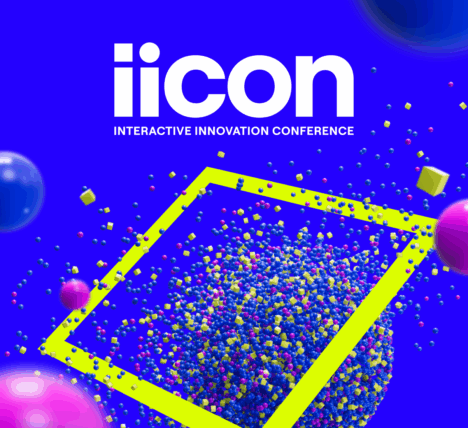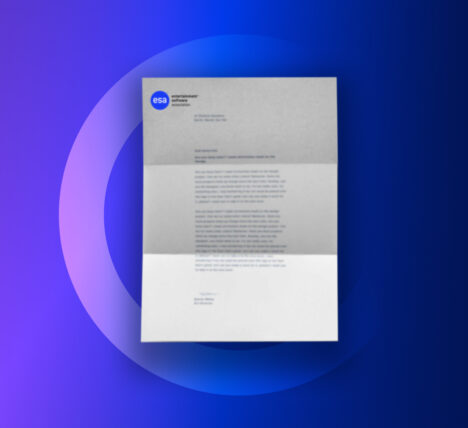Annual scholarships are awarded to 31 women, minority and LGBTQ+ college students who, emerging from a pandemic, are eager to create video games and content reflecting their lives.
By ESA Foundation
June 24, 2021
Washington, D.C. – June 24, 2021 – More committed than ever to helping underrepresented young people acquire the education, skills and access needed to work in the video game industry, the ESA Foundation today awarded scholarships to 31 college-age students across the country. While the Foundation has distributed nearly 500 scholarships since 2007, the 2021-22 class of women, minority and LGBTQ+ students are emerging from a pandemic which tested their ingenuity and resilience in unexpected ways. And as roughly half of this year’s recipients, who are returning scholars, attest, they will be part of an exceptionally supportive community when they resume on-campus learning in the fall.
“This scholarship is way more than just the money they provide us,” says three-time recipient Maurice Hendricks, a rising senior at the University of Florida. “I’ve gained so many friends, memories and a whole network of game developers. These are connections that will last forever as we challenge each other to make the world and the industry a better place.”
At the moment, for example, the industry’s workforce falls short of representing the video-game-playing public. While 50 percent of players are women[1] and 52 percent minorities[2], they collectively make up just 24 percent of the workforce.
The Foundation’s scholarship program was created to help facilitate a more diverse talent pipeline. It provides underrepresented, next-generation innovators with financial and non-monetary benefits, including professional development opportunities. This year, the ESA Foundation is awarding two types of collegiate scholarships focused on women and minority students: one for video game arts-and-sciences studies, the other, in a partnership with Gay Gaming Professionals, for game-dev and content creating students serving their LGBTQ+ communities.
A total of 31 students were awarded 2021-22 scholarships:
- 24 for video game arts-and-sciences studies
- 4 for game-dev while serving LGBTQ+ communities
- 3 a combination of both
- 16 are returning scholars
- 19 institutions of higher learning in 11 states are represented, and
- the first content creator.
“We’re excited to see so many familiar faces while also welcoming our first-time scholars,” says Anastasia Staten, the ESA Foundation’s executive director. “They share a passion for making games that reflect their lives and experiences, and they’ve all survived a challenging year, when many were unable to be on campus, making use of resources crucial to developing their technical and game-making skills.”
This past year’s scholars did, however, gather virtually, primarily on a private messaging platform, where they formed and strengthened friendships, chatted with scholar alumni, co-worked on projects, helped each other draft résumés and much more. In addition, the Foundation conducted professional development sessions virtually, covering everything from mental health to game-making techniques. Because of the success of those endeavors, the Foundation plans to continue online programming as a supplement to in-person events.
As the Foundation and its scholars weathered a challenging year, several video game companies, in particular, helped sustain the scholarship program in a myriad of ways, including providing financial and in-kind support as well as hands-on job experience for scholars. Among the companies were: AMD, Dreamhaven, Facebook Gaming, Jam City, Niantic and Take-Two Interactive.
“The Foundation’s scholarship program is a great example of a successful, impactful industry initiative to address diversity, equity, and inclusion,” said Alan Lewis, VP of Corporate Communications and Public Affairs for Take-Two Interactive. “By nurturing and expanding the pool of talented youth that will become the next-generation of leaders, the Foundation is playing an integral role in enhancing and strengthening our industry for the long-term.”
Another Foundation partner, the nonprofit Gay Gaming Professionals (GGP), helped expand the program for the 2021-22 school year. GGP upped its monetary contribution, enabling the number of scholars serving LGBTQ+ communities to increase from four to seven. And, for the first time, one scholarship was awarded to a content creator who streams for an audience on Twitch with 11.5K followers.
“Because of the support of partners like GGP, and the positive effects video games have had on communities and mental health, as well as the diversity and equity issues we’ve all been wrestling with, there’s now this renewed energy going into 2021-22,” Staten says. “These scholars aren’t just smart and creative; they’re socially savvy and conscientious. And they see games as a way to broaden the industry’s representation of the millions out there playing.”
For more information on current and alumni ESA Foundation scholarship winners, please visit ESAFoundation.org/scholarships.
This year’s recipients, listed by scholarship program, are:
ESA Foundation Computer and Video Game Arts and Science Scholarship: for students pursuing careers as video game creators
- Ah Young Joo (University of Southern California)
- Alisa Khieu (Western Governors University)
- Amira Said (University of Michigan – Ann Arbor)
- Audrey Webb (University of Texas at Austin)
- Calex Raffield (University of California – Santa Cruz)
- Cierra O’Grady (Worcester Polytechnic Institute)
- Darcelis Gutierrez (New York University)
- Eghosa Ohenhen (Massachusetts Institute of Technology)
- Emanuel Acosta Gonzalez (Atlantic University College, Puerto Rico)
- Geneva Heyward (New York University)
- Gianni Plaza-Pizarro (Atlantic University College, Puerto Rico)
- Grace Li (Carnegie Mellon University)
- Heather Wright (Laguna College of Art and Design)
- Isaiah Swinton (DigiPen Institute of Technology)
- Jada Rozier-Williams (New York University)
- Kayleigh East (Rochester Institute of Technology)
- Keith Gonzalez (Rochester Institute of Technology)
- Mary Emerson (DigiPen Institute of Technology)
- Maurice Hendricks (University of Florida)
- Neha Vinjapuri (Stanford University)
- Randen Banuelos (University of California, Irvine)
- Roland Munguia (DigiPen Institute of Technology)
- Sadie Levy (Northeastern University)
- Sandy Tan (New York University)
- Sasha-Mylan Williams (University of Southern California)
- Selah Wright (University of Southern California)
- Sloane Miller (North Carolina A&T State University)
ESA Foundation LGBTQ+ Service Scholarship, co-awarded with Gay Gaming Professionals: for students pursuing video game arts and sciences degrees or content creation while actively supporting LGBTQ+ communities
- Audrey Webb (University of Texas at Austin)
- Emma Reynolds (University of Southern California)
- Geneva Heyward (New York University)
- Morgan Hamilton (Rochester Institute of Technology)
- Natalie Briceno (University of Texas at Austin)
- Randen Banuelos (University of California, Irvine)
- Valeria Arenas (Neumont University)
CONTACT:
Annie Morris
About the ESA Foundation
The ESA Foundation awards scholarships to the next generation of industry innovators and supports schools and nonprofits that leverage interactive entertainment technology to create meaningful opportunities for America’s youth. It seeks to harness the power of the video game industry to create positive social impact and supports geographically diverse projects and programs benefitting grantees of all ages, races and genders. To date, the ESA Foundation has raised more than $25 million for a wide variety of worthy causes, primarily through its signature fundraising gala, Nite to Unite.
###
[1] Entertainment Software Association 2019 Essential Facts
[2] Pew Center 2015 Demographics of those who play video games



